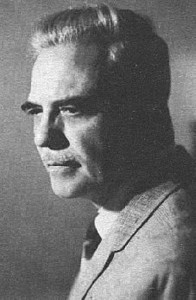Many NLP language patterns work because they break the laws of logic.
We do not succeed in both affirming and negating one and the same thing: that is a subjective empirical proposition which expresses not a ‘necessity’ but only ‘a non-ability’. If, according to Aristotle, the principle of non-contradiction is the most certain of all principles, if it is the final and most fundamental one upon which all proofs are based, if the principle of all other axioms lies within it: then one ought to examine all the more carefully what it actually presupposes in the way of theses. Either, as if it already knew the real from somewhere else, it asserts something with respect to the real, to what is: namely, that opposite predicates cannot be ascribed to the real. Or does the principle mean that opposite predicates shall not be ascribed to it? Then logic would be an imperative, not to know the true, but to posit and arrange a world that shall be called true by us. In short, the question remains open: are the axioms of logic adequate to the real, or are they measures and means to create for us the real, the concept ‘reality’? … But to be able to affirm the former one would, as I have said, already need to be acquainted with what is; and that’s simply not the case. The principle thus contains not a criterion of truth, but rather an imperative about what shall count as true. Supposing there were no A identical with itself, such as that presupposed by every logical (including mathematical) principle, supposing A were already an illusion, then logic would have as its presupposition a merely illusory world. And indeed we believe in that principle under the impression of endless experience which seems continually to confirm it. The ‘thing’ – that is the real substratum of A: our belief in things is the precondition for our belief in logic. The A of logic is, like the atom, a re-construction of the ‘thing’ … By not grasping that, and by making of logic a criterion of true being, we are well on the way to positing all those hypostases – substance, predicate, object, subject, action, etc. – as realities: i.e., to conceiving a metaphysical world, i.e., a ‘true world’ (- but this is the illusory world once again . ..). The most basic acts of thought – affirming and negating, holding-to-be-true and holding-to-be-not-true are, inasmuch as they presuppose not only a habit but a right to hold-to-be-true or hold-to-be-not-true in general, themselves ruled by a belief that there is knowledge for us, that judging really can reach the truth. In short, logic does not doubt its ability to state something about the true-in-itself (namely, that this cannot have opposite predicates). Here the crude, sensualist prejudice reigns that sensations teach us truths about things – that I cannot say at the same time of one and the same thing that it is hard and it is soft (the instinctive proof’I cannot have two opposite sensations at the same time’ – quite crude and false). The conceptual ban on contradiction proceeds from the belief that we are able to form concepts, that a concept doesn’t merely name what is true in a thing but encompasses it … In fact logic (like geometry and arithmetic) only applies to fictitious truths that we have created. Logic is the attempt to understand the real world according to a scheme of being that we have posited, or, more correctly, the attempt to make it formulatable, calculable for us …
Notebook 9, autumn 1887 paragraph 97
Logic is tied to the condition: assuming that identical cases exist. Indeed, in order to think and conclude logically, the fulfillment of this condition must first be feigned. That is: the will to logical truth cannot realize itself until a fundamental falsification of all events has been undertaken. From which it follows that a drive rules here which is capable of both means, firstly of falsifying, then of implementing a single viewpoint: logic does not originate in the will to truth.
Notebook 40, August – September 1885 paragraph 13
